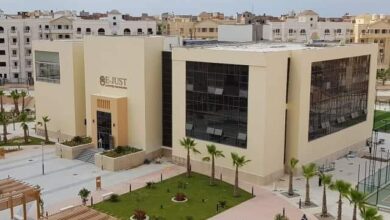Al-Masry Al-Youm spoke with Major-General Mohamed Tawfiq about the history of state-administrated security on Egyptian university campuses, as well as a recent court order calling for its removal.
Al-Masry Al-Youm: What were the reasons for late president Sadat's 1971 resolution to remove university guards from the country’s campuses?
Mohamed Tawfiq: Sadat's resolution came without explanation. He heard that there were complaints about freedoms being restricted, so he issued the resolution.
Al-Masry: And what happened following the resolution?
Tawfiq: It was a new era at the universities, during which they relied on civil security and officers who had left the service many years earlier. And, of course, they did not have the security capabilities to protect the universities in all respects.
Extremist groups exploited this period, from 1971 to the end of the 1970s. They began to appear in the public arena, growing and expanding during this period until they gained total control over university activity.
Al-Masry: Are you referring specifically to the Muslim Brotherhood opposition group, either at Cairo University or at Al-Azhar?
Tawfiq: I'm referring to a number of incidents. At one point, students organized a book fair. Muslim Brotherhood students turned up and performed afternoon prayers in front of the building. They told Auda: "We're giving you 24 hours to cancel the godless and licentious fair which includes books by Marx and Lenin." The following day, they came and destroyed the entire book fair by force.
Al-Masry: What about the deployment of security guards at Cairo University in 1980, before the resolution to re-establish a security presence in universities?
Tawfiq: In 1980, I was summoned along with four other officers–I was a lieutenant-colonel at that time –to the office of First Assistant to the Minister of Security, Hassan Abu Pasha. He said he had chosen us, based on a request by Cairo University President Hassan Hamdy, to form a general security administration for the university.
Al-Masry: What was your relationship like at that time with the Interior Ministry?
Tawfiq: I explained that our relationship with the Interior Ministry didn’t extend beyond the ID card that proved we were police officers. We didn't dress like Interior Ministry personnel when we went to the university.
We were asked to write an official report about the security situation at the university. I was the one who wrote the report, which concluded that the situation was extremely bad from a security perspective.
We began by assessing our needs in order to be able to work, and we formed the new security administration of Cairo University. The first director of the administration was Major-General Gaber Nazlawy.
Al-Masry: Do you think the creation of the Cairo University security administration in 1980 was a preface to the subsequent decision to reestablish the security presence on university campuses one year later?
Tawfiq: I think that the state was preparing to take this step in September 1981, and forming a security administration was a kind of experiment, because we all were on loan, and took our salaries from Cairo University. In the middle of these events, the resolution to return university guards was issued with the official uniform.
Al-Masry: What happened following the return of campus security by order of President Sadat?
Tawfiq: Following the resolution, we were put under the supervision of the head of the security directorate, located on campus, while guards were chosen from the Ministry of the Interior. They were subject to special standards, meaning that there were no overly-aggressive officers since they were chosen from among the top of the political and administrative system of the state.




